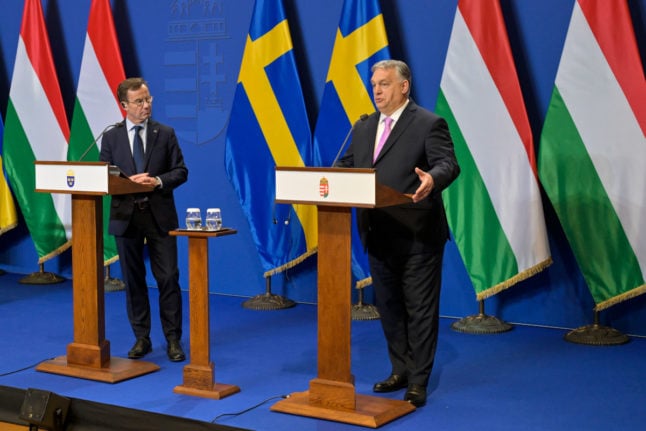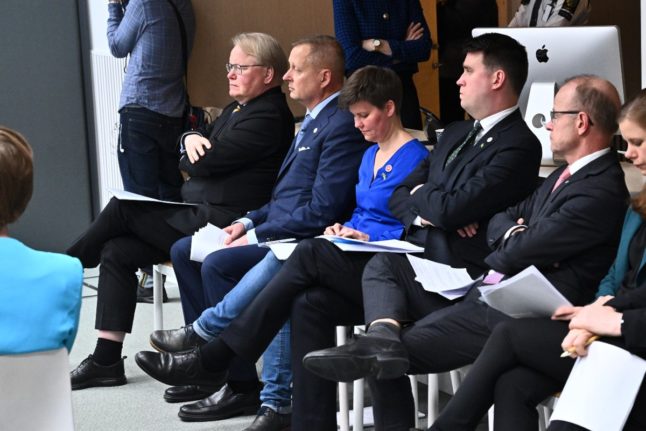The vote would end a long delay that left fellow Nato partners furious as Ukraine has battled Russian troops.
Russia’s February 2022 invasion prompted Sweden to apply to join the bloc in May 2022, alongside neighbouring Finland, ending a long-standing stance of non-alignment.
Finland became the 31st member of the US-led defence alliance in April 2023.
But while Hungary repeatedly said it supported Swedish membership in principle, it kept prolonging the process by asking Sweden to stop “vilifying” the Hungarian government.
Budapest also accused Swedish officials of being “keen to bash Hungary” on rule-of-law issues.
After a meeting on Friday between Hungarian Prime Minister Viktor Orban and his Swedish counterpart Ulf Kristersson in Budapest, the nationalist leader announced progress.
“We have managed to clarify our mutual good intentions,” Orban told journalists after signing a deal to acquire four Swedish-made fighter jets, expanding its existing fleet of 14 Jas-39 Gripen fighters.
Orban’s nationalist Fidesz party – whose ruling coalition with the Christian Democratic KDNP holds a two-thirds majority in parliament — had already indicated it would support Sweden’s bid.
All opposition parties except the far-right Our Homeland movement are in favour of ratification.
Lawmakers were widely expected to greenlight the Nordic nation’s bid in the parliamentary vote at around 4.20pm on Monday.
Once parliament has approved the bid, the president is expected to sign it in the coming days.
Sweden will then be invited to accede to the Washington Treaty and officially become a Nato member.
In the case of Finland, for example, Ankara gave the green light on March 30th, 2023, and Finland became a Nato member on April 4th.
Maintaining domestic popularity
After Russia’s invasion of Ukraine, most Nato members were keen to quickly approve the membership bids of both Finland and Sweden.
Hungary and the other holdout Turkey held up the process, especially for Sweden.
While Ankara cited security concerns, Budapest invoked a range of different reasons for delaying ratification.
For some experts, it was a strategy to wring concessions from Brussels to unlock billions of euros in frozen funds. Others argued it underlined Orban’s closeness to the presidents of Russia and Turkey.
For analyst Mate Szalai of Venice’s Ca’ Foscari University, Orban was simply playing to his domestic audience.
“Orban wanted to go as far as he could without causing serious problems to the Transatlantic community while proving that Hungary is a power to be reckoned with,” he told AFP.
While Hungary’s “confrontational behaviour” did not reap any tangible results, it might have “been beneficial domestically for the ruling Fidesz party”, he added.
“Many initiatives of the Hungarian government are designed to provoke a backlash in Europe,” said Szalai.
“And most criticism expressed towards the Orban government actually helps Fidesz to maintain its popularity in the country.”
Hungary approved Finland’s membership last March, but despite its earlier promises, Budapest ended up being the last to vote on Sweden’s Nato aspirations.



 Please whitelist us to continue reading.
Please whitelist us to continue reading.
Member comments